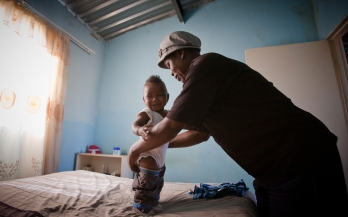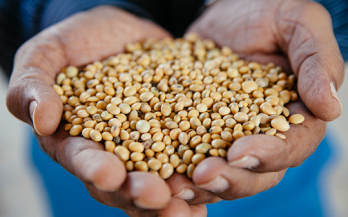


GAIN part of winning bid for new five-year USAID Advancing Nutrition programme
GAIN is part of the consortium led by JSI Research & Training Institute, Inc. (JSI) selected by USAID to improve nutrition for women and children in low- and middle-income countries around the globe. The five-year programme will bring together international and local organisations from various sectors and different disciplines to design, implement, and evaluate activities that combat malnutrition.
Best reads in 2018 from the GAIN staff
We at GAIN like to think of ourselves as a learning organisation and I invited our staff to tell us about the standout thing from 2018 that they were reading that had meaning for their work, and to tell us why they chose it. Twenty-five of them responded and here are their contributions. Like our staff the selections embrace diversity. Enjoy, and keep being curious!
Access to start-up and middle-level equity finance for Nigerian agribusinesses
- 01/07/2017
In this Learning Brief, the Postharvest Loss Alliance for Nutrition (PLAN) explores some of the equity funding options available to small- and medium-sized agribusinesses in Nigeria. This brief is meant to serve as a primer to help business owners gain a better understanding of how to make their business ideas more attractive to investors.
The partnering toolbook
- 01/01/2013
The Partnering toolbook builds on the experience of those who have been at the forefront of innovative partnerships and offers a concise overview of the essential elements that make for effective partnering.
The role of the private sector in rice fortification
- 01/01/2017
This report outlines the various private sector actors involved in rice fortification, as well as the interests and role of those actors. It offers case studies which further illustrate what the critical role of the private sector has been in various delivery models.
Shaping markets to combat undernutrition: rethinking approaches to scaling up the role of the private sector
- 01/09/2011
This paper provides a snapshot of new approaches and innovations led by the private sector to shape and change food consumption patterns. It also raises the question of how to build on these models to redress the urgent dietary needs of some two billion undernourished people.
Improving complementary feeding: assessing public and private sector business models
- 01/02/2015
This paper examines lessons on business models for improved access of product-based options to improve complementary feeding, through market-based or public service delivery.
No more missed opportunities: advancing public-private partnerships to achieve the global nutrition goals
- 02/10/2017
This report lays out a case to establish a stronger foundation for the next decade of engagement between governments and businesses to advance nutrition goals. The overall aim was to contribute to a more effective public-private partnership to advance nutrition and the Sustainable Development Goals.
Business and malnutrition: opportunities and challenges for the food industry in reaching the poor
- 01/06/2008
This special report discusses main investment hurdles and constraints in fighting malnutrition at the global and local levels and ways to deliver inclusive and sustainable business solutions that improve nutrition.